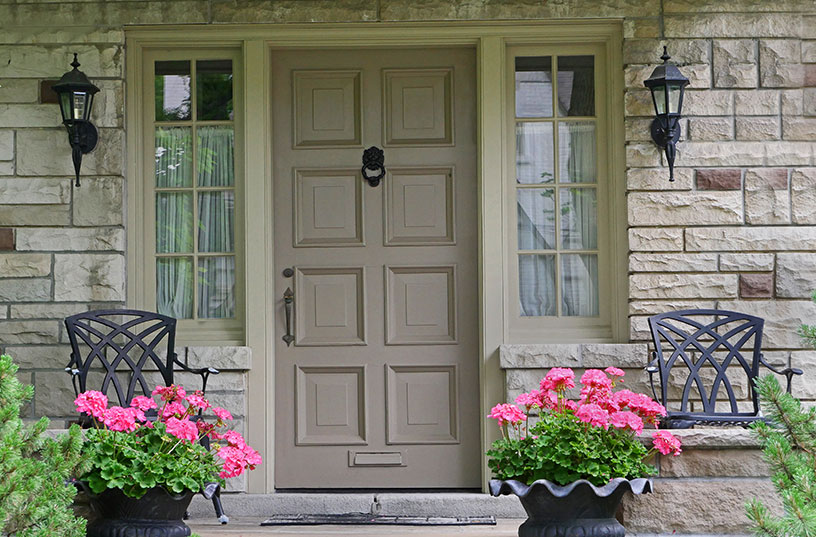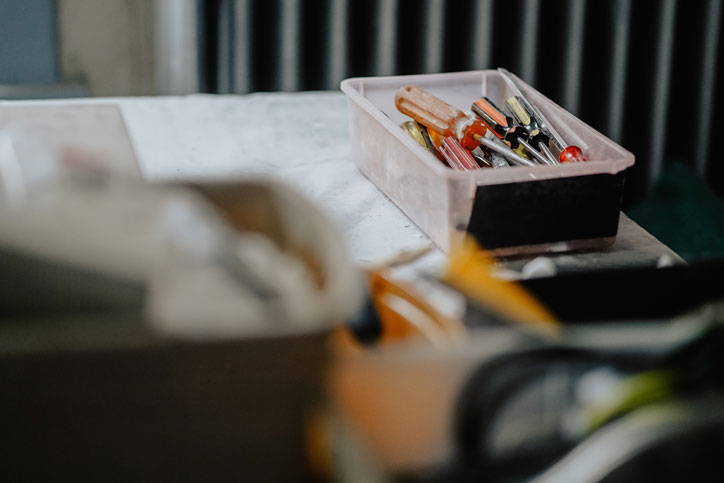When Joe and Sandra got the keys to their new home, they were naturally excited. But when they opened the door on move-in day, they felt that excitement deflate like a popped balloon. Did the carpet look that dirty and stained when they toured the home months ago? Were the walls really that dingy, and didn’t the space seem bigger? They also began to wonder if they could really afford house payments, plus the cost of renovations? “What did we do?”
The fact is buyer’s remorse or regret after purchasing a home is very common. In fact, a new survey from Clever Real Estate found that a whopping 82% of home buyers express regrets about their recent purchase!
“A home purchase is most likely one of the largest purchases you will make in your life, and it can be an emotional rollercoaster,” says Marcy Downy, a mortgage loan originator at Motto Mortgage Signature Plus. “So, of course, it’s difficult to make a decision like that with 100% certainty.”
Buyer’s remorse can be rooted in a number of issues, from feeling like you overpaid for a home to discovering problems after closing. Fortunately, there are things you can do to prevent buyer’s remorse and ease your concerns after moving in.
Unwelcome Surprises
The most common source of buyer’s remorse is the discovery of problems with the house after closing. Chances are, when you toured the home, it was filled with furnishings, which can make a house seem cozy and lived-in. Once those furnishings are removed, a house can seem barren, and flaws are revealed. Furniture can hide carpet stains, while paintings and other décor can mask the need for fresh paint. Thankfully, most of these issues are easy to fix.
If you’re seeing your new home with fresh eyes – and not liking what you’re seeing – first take a deep breath. Then start making a list of the items you want to tackle. It can be easy to become overwhelmed by a long to-do list, and you might not be able to do everything at once, so be sure to prioritize items. Having the carpets or floors professionally cleaned and the house scrubbed from top to bottom before you move in can make a huge difference. A fresh coat of paint in the rooms you will use most can brighten a space – and your mood – dramatically.
Oftentimes, once you’ve filled your new home with your own furniture and belongings, and add some personal touches, you fall back in love with the house you toured. Give yourself a little time to live in the rooms and assess what you want to change in the future, as well as what made you choose the house in the first place!
What if the defects are serious? Most states have laws that require sellers to advise buyers of certain defects in the property. These typically include “material defects” which impact the home’s value or safety, such as water or flood damage, a leaking roof, structural problems, and electrical issues, to name a few. It’s always advisable to have a professional home inspection done prior to purchase. This in-person evaluation of the home’s condition can help you avoid costly problems. If repairs are needed, you can budget for them or ask the seller to help cover the costs.
However, if you find undisclosed problems with your home after you move in, you may be able to take legal action. You can start by contacting your real estate agent and/or hiring a real estate attorney. For more about undisclosed defects and legal options, click here.
Of course, sometimes things just happen – the furnace fails on the coldest day of the year, or the hot water heater breaks a week after you move in. It’s frustrating, but as the new homeowner, these repairs are now your responsibility. That’s why experts recommend that home buyers have money saved for unexpected repairs and maintenance costs.
Financial Fears
Signing all those forms at closing can be shocking because it’s the first time you’re seeing all the costs involved in purchasing your new home on paper! In a survey by Bankrate, 3% of U.S. homebuyers said that buying more home than they could afford was their top regret. That same survey revealed that 41% of respondents regretted buying a home that had more hidden costs than expected. The best way to avoid this type of buyer’s remorse is to get preapproved for a mortgage, and work with a knowledgeable agent!
Getting preapproved for a mortgage before you begin house hunting can help you stay within budget, but experts caution against spending the full amount of your approved loan. You don’t want to become “house poor,” which refers to spending too much on housing expenses, relative to your income. You’ll need to have money left for savings, paying other bills, and daily living expenses – not to mention unforeseen repairs and maintenance. Keep in mind that 43% of recent homebuyers who exceeded their budget have struggled to make their mortgage payments on time!
You can also avoid buyer’s remorse by taking your time. With today’s lack of inventory in many markets, it can be tempting to jump at the first house that meets your criteria. This can be especially true for first-time home buyers who can be easily tempted to stretch their budget when multiple offers are made. But rushing can lead to regret. Look at as many houses as you can, ask questions, research the area, and compare listings.
Get Some Help
Honestly, the best way to avoid buyer’s remorse is to work with a knowledgeable real estate agent. Local agents are experts who understand what’s available in the area that meets your needs and your budget. They can also help guide you through the process of getting a home inspection and negotiate your contract. For instance, your contract should include contingency clauses, which allow you to cancel the purchase if certain circumstances are not met.
Remember, it’s natural to feel some level of buyer’s remorse when making such a big purchase. A new home is exciting, but it also comes with new responsibilities and financial obligations, as well as the stress of unpacking and organizing, getting to know a new area, and making decisions about possible renovations. However, if you plan carefully and enlist the help of a trusted agent, you can minimize the regret and maximize the joy.
- Be clear about what you’re looking for before house hunting. What are your “must haves” vs. what would be nice but not necessary.
- Research the area and be sure it meets your needs (i.e., commuting times, schools, parks, amenities, etc.).
- Consider your lifestyle and time constraints. If you work long hours, do you really have time to maintain a big yard?
- Resist the urge to rush into a purchase in a competitive market. Make sure the property meets your long-term needs.
- Consider the proximity to friends and family










